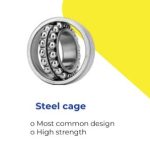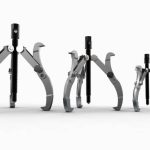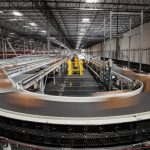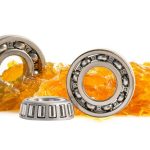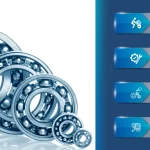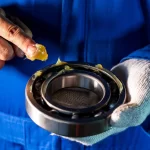The Impact of Precision on Energy Efficiency
In industrial machinery and equipment, precision is not just a desirable trait but a fundamental necessity. Nowhere is this more evident than in the manufacturing of bearings, where precision plays a pivotal role in enhancing energy efficiency. By minimizing friction, reducing heat generation, and optimizing performance, precision bearings contribute significantly to the overall energy efficiency of machinery, leading to cost savings and environmental benefits.
Precision Bearings as Pillars of Performance
At the heart of every efficient and reliable mechanical system lies a set of precision bearings. These meticulously crafted components provide stable support, smooth rotation, and minimal vibration, ensuring the seamless operation of everything from automotive engines to aerospace systems. In industries where precision is paramount, such as aerospace and medical devices, the choice of bearings can mean the difference between success and failure.
Precision Bearings and Industry Standards
To maintain consistency and quality across the manufacturing process, precision bearings adhere to stringent industry standards and specifications. Whether it’s ISO standards for dimensional accuracy or ABEC ratings for tolerances, these benchmarks ensure that precision bearings meet the exacting requirements of diverse industrial applications. Adherence to standards not only fosters trust among manufacturers but also ensures compatibility and interchangeability of bearings across different systems.
Precision Unleashed: Enabling Innovation and Miniaturization
The relentless pursuit of precision in bearing manufacturing has paved the way for groundbreaking innovations and advancements. From the development of miniature bearings for microelectronics to high-speed bearings for automotive and aerospace applications, precision has unlocked new frontiers in technology. As industries continue to demand smaller, lighter, and more efficient solutions, precision bearings remain at the forefront of innovation, enabling the miniaturization and optimization of mechanical systems.
The Cost-Saving Advantages of Precision Bearings
While precision bearings may come with a higher initial investment, their long-term benefits far outweigh the costs. By reducing friction, minimizing wear and tear, and extending maintenance intervals, precision bearings offer substantial cost savings over their lifespan. Moreover, their superior performance and reliability translate into fewer downtimes, increased productivity, and enhanced profitability for businesses across various sectors.
Consistency and Quality: Precision's Role in Manufacturing
In the competitive landscape of manufacturing, consistency and quality are non-negotiable. Precision bearings play a crucial role in upholding these standards by delivering uniform performance, tight tolerances, and reliable operation. Whether it’s in the production of consumer electronics or heavy machinery, the use of precision bearings ensures that every product meets or exceeds customer expectations, fostering trust and loyalty in the brand.
FAQ's
What is the difference between a precision bearing and a standard bearing?
Precision bearings are manufactured to tighter tolerances and higher standards of accuracy compared to standard bearings, resulting in superior performance, reliability, and consistency.
What is the role of precision bearings in manufacturing processes?
Precision bearings provide stable support, smooth rotation, and minimal friction in various manufacturing equipment, contributing to increased efficiency, productivity, and quality of the end products.
Can upgrading to precision bearings improve the lifespan of machinery?
Yes, upgrading to precision bearings can significantly improve the lifespan of machinery by reducing wear and tear, minimizing maintenance requirements, and enhancing overall reliability and performance.
How do precision bearings enhance the performance of industrial equipment?
Precision bearings reduce friction, vibration, and heat generation in industrial equipment, leading to smoother operation, higher efficiency, and improved productivity, ultimately enhancing the performance of the machinery.
What technological advancements have been made in precision bearing manufacturing?
Technological advancements in precision bearing manufacturing include improvements in materials, surface treatments, lubrication techniques, and manufacturing processes, resulting in bearings that offer higher precision, durability, and reliability.
How do precision bearings contribute to overall machinery efficiency?
Precision bearings minimize energy loss due to friction, optimize rotational motion, and ensure precise alignment in machinery, thereby enhancing overall efficiency, reducing operational costs, and maximizing productivity.




